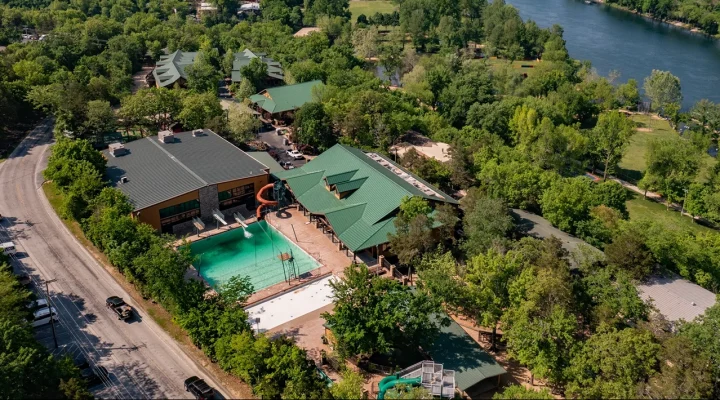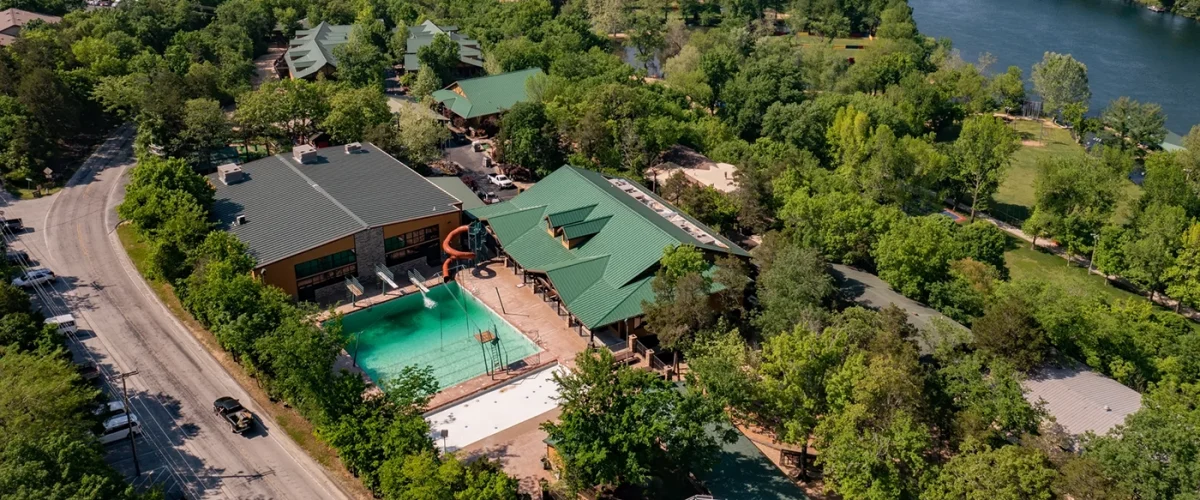Survivors of child sexual abuse are attempting to enact laws in Missouri and Texas to change the legal landscape for Christian camps that cater to children and teens.
Four witnesses who say they were abused at Kanakuk Kamps, a popular evangelical camp outside Branson, Mo., testified before Missouri’s House Judiciary Committee Feb. 13 in support of House Bill 367. Two days later, survivors and advocates connected to Kanakuk and other camping organizations rallied on the steps of the Texas Capitol to promote House Bill 206 and Senate Bill 751.
The groups are seeking reforms in laws regarding the statute of limitations for sexual abuse. They hope to extend or eliminate the civil limitations on legal action, which would allow abuse victims more time to report their experiences to law enforcement.
In Missouri, HB 367, filed by Rep. Brian Seitz (R) and co-sponsored by Rep. Sarah Unsicker (D), proposes an extension of the civil statute of limitations. The bill would extend the age limitation for victims bringing civil action against any perpetrator of sexual violence or torturous acts against a “vulnerable victim” to 55. The bill defines a “vulnerable victim” as any person who was “disabled, a minor or both” at the time they were sexually abused. The bill also would allow civil actions that were barred or dismissed due to the civil statute of limitations to be revived within the confines of legislation.
If this bill is passed, any victim of child sexual abuse in Missouri would have the ability to take legal action against their perpetrator of sexual violence until the victim turns 55. Victims would have the option to report and seek justice for crimes committed against them for decades after their abuse.
In Texas, HB 206, filed by Rep. Ann Johnson (D), and SB 751, filed by Sen. Pete Flores (R), propose the complete removal of civil statutes of limitation for sexual offenses against a child. These offenses include sexual assault of a child, aggravated assault of a child, continuous sexual abuse of a young child or disabled individual, sex trafficking of a child, compelling a child into prostitution and indecency with a child.
If this bill is passed, Texas child sexual abuse victims could take legal action against their perpetrators for the rest of their lives.
Joe Alarcon, father of Ashton Alarcon from Amarillo, Texas, spoke in Texas on behalf of Kanakuk survivors, including his son, “who was abused in multiple states, including Texas,” he said. The 2019 publication Molestation and Abuse by Camp Counselors lists 22 summer camps in Texas.
Through no fault of their own …
Introducing HB 367, Seitz emphasized the long-term importance of the bill for child sexual abuse victims and survivors. “Through no fault of their own, children and/or the medically disabled who may have been abused in the past are being victimized again by not being able to hold the perpetrators to account in civil actions,” he said.
The first victim with Kanakuk ties who spoke at the hearing, Elizabeth Phillips, discussed how the bill would help prevent self-harm and suicidal thoughts, which multiple victims said is a pressing issue among Kanakuk survivors. “This is a matter of life and death,” she said. “So far, we know of over 15 deaths of despair associated with Kanakuk abuse. But HB 367 is a glimmer of hope.
“Anything less than what this bill proposes gives perpetrators and the institutions that harbor them an advantage over abused children and their recoveries. Who wants that? Let your courts hear these cases. Until then, Missouri is not safe for children.”
“The law was telling me there was nothing to be done about it, and the clock had run out on me.”
Evan Hoffpauir, another victim who spoke at the hearing, said he did not learn for years that Kanakuk Kamps was aware of his abuser’s predatory tendencies the year they met, in 1999. Because of the shame he felt for what was done to him, he did not tell anyone about his abuse until 2009, when his abuser was on trial and he told his wife.
In 2021, Hoffpauir learned Kanakuk knew about his abuser’s actions against children yet failed to protect him and other children, he said. In 2022, he finally was able to tell his parents and brother what happened at Kanakuk, he added.
The clock had run out
“For years, I just fought to be myself,” he said. “I was crushed to find out I was a few years past the Missouri statute of limitations. The law was telling me there was nothing to be done about it, and the clock had run out on me.

Missouri State Capitol
“The current civil statute laws only protect the perpetrator. Many victims fight for years amidst trauma, depression, suicidal thoughts and shame, and it takes them years to be ready to tell their stories, if ever. And not all even survive.”
The third witness, Keith Dygart, reported on his own settlement with Kanakuk, describing the immense toll his legal battle took on his family. It led him to settle and sign a non-disparagement agreement “at a time when only a small portion of the story was actually known,” he said.
Because of Kanakuk’s ability to cover up the breadth of sexual violence that occurred, many victims never learned how far the problem expanded beyond their own case “until they were past the statute of limitations, and now legal accountability is no longer an option for them,” Dygart said.
As victims process their abuses and learn new information about their abusers, they may need time to choose to seek legal action, he said.
“The full scope of victims is still unrealized,” he added. “According to research, the average age of disclosure of child victims of sexual assault is 52. Not 31, not 50. It is 52. Many even take this burden to the grave.
“With Missouri’s current statute of limitations, most of our abused children, which statistically is one in four girls and one in six boys, will never be allowed to seek legal action against the enablers of their perpetrators.”
“With Missouri’s current statute of limitations, most of our abused children, which statistically is one in four girls and one in six boys, will never be allowed to seek legal action against the enablers of their perpetrators.”
The final victim to speak at the hearing, Jody Jones, described how she felt following abuse that happened when she was just 8 years old in 1985, not knowing if she could tell anyone what happened to her.
“For years, I remember walking down to my parent’s room at night and putting my hand on the doorknob and wanting to go in to tell them, and going back upstairs and crying myself to sleep, because I didn’t have the courage at the time to say something,” she said.
In 1990, Jones told a fellow camper about the abuse after once more facing her perpetrator at Kanakuk, she said, noting she was required to tell her story in a room full of camp directors, none of whom advised her to seek legal counsel.
Mom trusted the camp
When camp directors told her mother about the abuse, they informed her they were unaware of other cases of abuse at Kanakuk and advised her against going to law enforcement about the abuse, she said. Her mother trusted Kanakuk to handle the situation internally, she added.
She later learned her abuser has worked with children at multiple institutions in the decades since her abuse, she said. She also reported another victim who was abused by the same person around the same time notified the camp in 1985, but Kanakuk did nothing.
“I didn’t know to fight for myself at that time,” Jones said. “I am now a 45-year-old woman with what I consider to be great strength, and it takes a lot of courage to get up here today and say this. And at 8 or 13 or those younger years when I was trying to tell what happened to me, I didn’t have the strength. I didn’t have the courage. I didn’t have the words or the support. So, is 55 a reasonable timeframe to push that back? I think so.”
The Missouri committee will vote on the legislation soon, and survivors are urging others to send emails to committee members in support of the bill. Hoffpauir noted in a public Facebook post intended to gain public support that speaking out “might have been the hardest thing that I’ve ever done.” Other survivors are posting support on social media and sending messages to committee members.
Survivors advocating for extension of the statute of limitations say restrictions on the time they have to seek justice prevent them from taking legal action. This not only hinders the healing process for victims themselves but also allows perpetrators to continue committing violence as their victims age out of the statute of limitations, they report.
Child sexual abuse survivors, their families and advocates insist passing these bills in Missouri and Texas will help victims continue to seek justice and create a safer future for children.
Mallory Challis is a senior at Wingate University and serves as BNG’s Clemons Fellow.
Related article:
Pedophilia at Kanakuk: Power, lies and evangelical values that cover up abuse
Additional coverage of abuse allegations at Kanakuk is available here:


